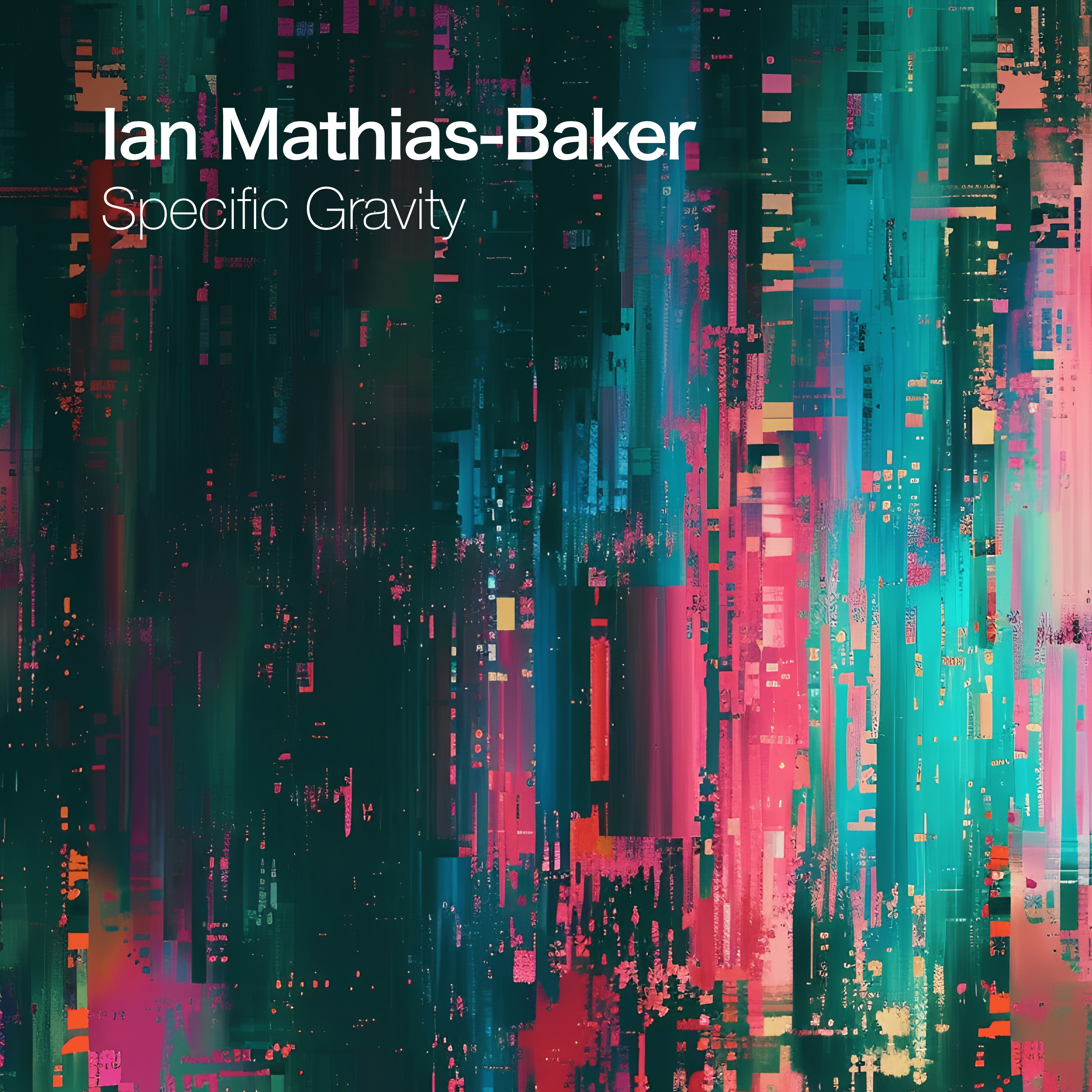On April 8th, 2024, composer-producer Ian Mathias-Baker unveiled his latest album, *Specific Gravity*. This six-track project, though concise, offers a depth that transcends its brevity, inviting listeners into a richly textured world of instrumental pieces and poetic settings inspired by literary giants T.S. Eliot and Charles Bukowski. Known for his genre-defying approach, Mathias-Baker continues to surprise with an album that is as unpredictable as it is profound.

Mathias-Baker has built a reputation for his ability to fluidly navigate various musical styles. From dystopian glitch and baroque counterpoint to mainstream pop and rock, his work resists easy categorization. This eclecticism is fully on display in *Specific Gravity*, where the textures are primarily those of a classical orchestra enhanced by electronic elements. The musical language of the album draws heavily from classical influences, evoking the emotional depth of Mahler and the brittle beauty of early 20th-century modernism.
The album is unrelentingly melancholic, using its stylistic choices not merely as affectations but as vehicles to express profound emotions. The overarching theme of *Specific Gravity* is one of grief and existential reflection, possibly for an unspecified personal tragedy. The album’s title suggests a particular weight to this grief, which is further explored in an accompanying essay published to mark the release.
Track Analysis
1. Mythic Texts: The album is framed by four ‘Mythic Texts,’ which suggest a tragedy that is both archetypal and personal. These pieces serve as the backbone of the album, offering a narrative structure that guides the listener through a journey of emotional and intellectual introspection.

2. Poetic Settings: Between the ‘Mythic Texts,’ Mathias-Baker presents two settings of poems by Charles Bukowski and T.S. Eliot.
– Bukowski’s “Man Mowing the Lawn Across the Way from Me”: This piece captures the limited horizons of mankind, with dark imagery that, when isolated from the full context of the poem, takes on a more existential menace. The musical accompaniment is minimal and ambient, featuring an acoustic piano run through delay lines, with distorted electric guitars mimicking the sharpening of knives.
– Eliot’s “The Hollow Men”: This setting is bleak and portentous, reflecting on the horrors of post-World War I disillusionment. Eliot’s text is delivered over a dizzying orchestral arrangement, where tension only finds release in banality. The spoken voice of the poem’s final lines—”This is the way the world ends, not with a bang but a whimper”—is set against a kitsch pop groove punctuated by random electronic sounds, suggesting the encroachment of machine logic over human thought.
The fourth ‘Mythic Text’ is the briefest, serving as a Greek chorus that reflects on the tragic nature of the preceding music. An impressionistic string elegy hints at a utopia tantalizingly beyond reach, only to collapse into dissonance. This theme of unattainable perfection and inevitable decay runs throughout the album, culminating in a final, discordant theatre organ passage that underscores the futility of human hubris.
The album was crafted with the meticulous production of Ian Mathias-Baker, whose previous works span a wide array of genres and collaborations. His ability to blend classical orchestration with modern electronic elements is evident throughout *Specific Gravity*, creating a soundscape that is both timeless and contemporary.
*Specific Gravity* stands as a testament to Ian Mathias-Baker’s versatility and emotional depth as a composer-producer. It is an album that invites repeated listening, each time revealing new layers of meaning and complexity. As the strains of the final track fade, listeners are left to contemplate the profound themes of grief, existential dread, and the resilience required to face an uncertain future.
